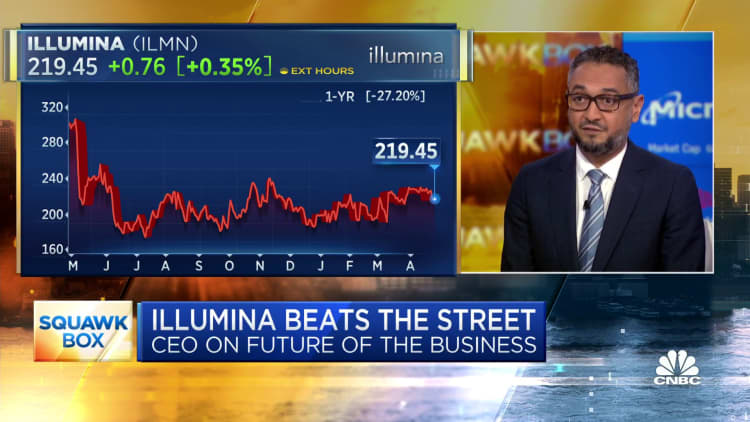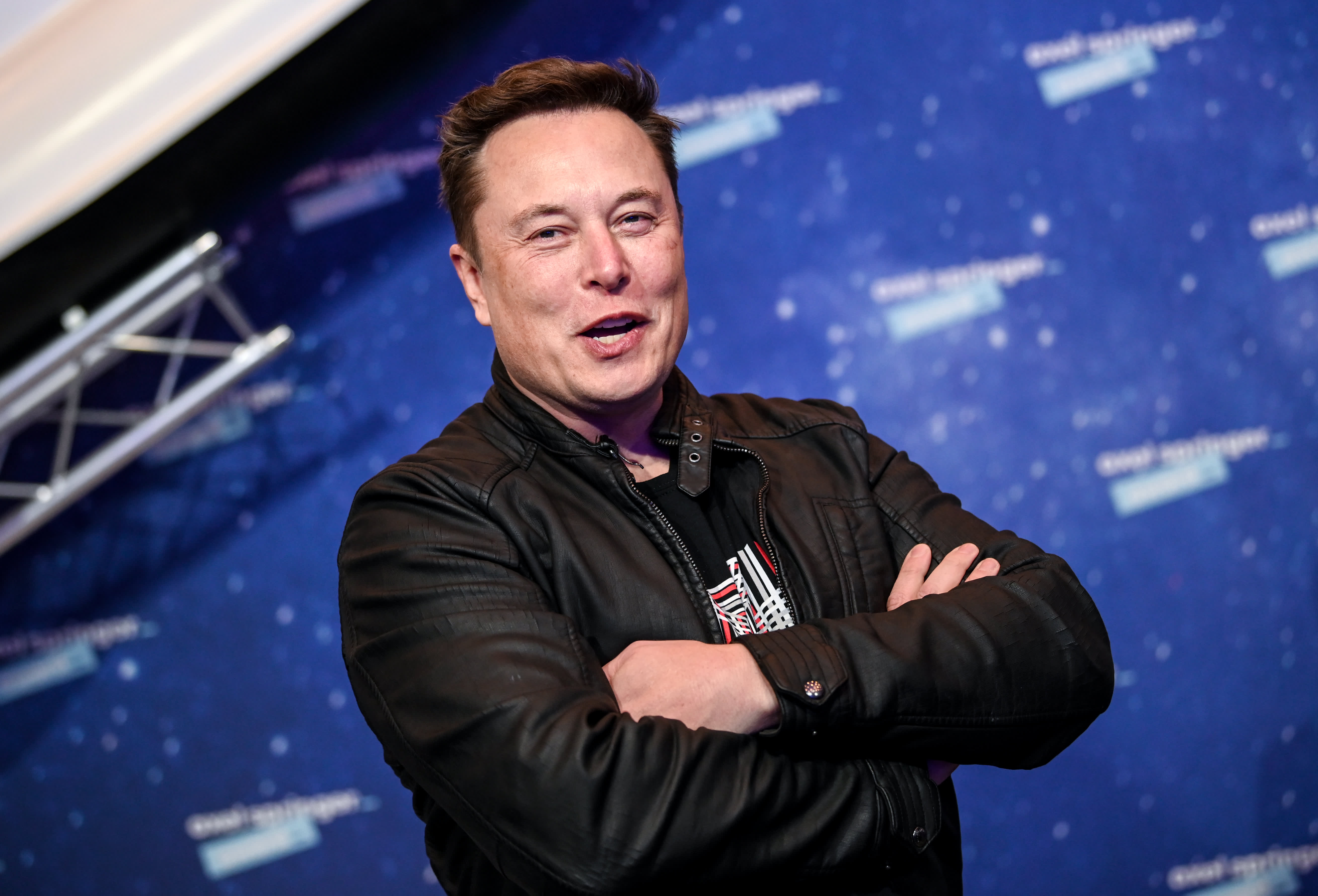[ad_1]

Illumina CEO Francis deSouza on Wednesday touted the company’s controversial acquisition of Grail after revenue from the cancer test developer doubled in the past year.
The Grail deal is the focus of a heated proxy fight between Illumina and activist investor Carl Icahn. Antitrust regulators in the U.S. and Europe also have ordered Illumina to divest the $7.1 billion acquisition Illumina completed in 2021.
related investing news


Grail raked in $20 million in revenue during the three-month period that ended April 2, according to Illumina’s first-quarter earnings release. That’s up 100% from the $10 million it reported during the same period a year ago.
DeSouza told CNBC’s “Squawk Box” that those sales are entirely driven by Grail’s early screening test, which can detect more than 50 types of cancers through a single blood draw.
Grail delivered 20,000 tests in the first quarter alone, he noted.
“Customer demand has been really strong,” deSouza said, calling the test a “huge breakthrough” product.
He added that the Grail deal “makes sense” for Illumina, citing the prospect of significantly expanding the market for the test. DeSouza also noted the company operates in more than 150 countries.
Illumina also is working to identify ways for patients to get reimbursed for the $950 test, he said.
“We can accelerate bringing this test to more people … than Grail can do on their own,” deSouza told CNBC.
But Icahn, who owns a 1.4% stake in Illumina, has called the Grail deal “disastrous” and “a new low in corporate governance.”
Icahn did not immediately respond to a request for comment.
The activist investor launched a proxy fight over the Grail acquisition last month, seeking seats on Illumina’s board of directors and urging the company to unwind the deal.
His resistance to the deal stems from Illumina’s decision to close it without approval from antitrust regulators.
The Federal Trade Commission earlier this month ordered Illumina to divest the acquisition, saying the deal would stifle competition and innovation. The European Commission, the executive body of the European Union, also blocked the deal last year over similar concerns.
Illumina is appealing both orders and expects final decisions in late 2023 or early 2024. Last week, a U.S. appeals court said it will fast track its review of Illumina’s appeal of the FTC order.
[ad_2]

